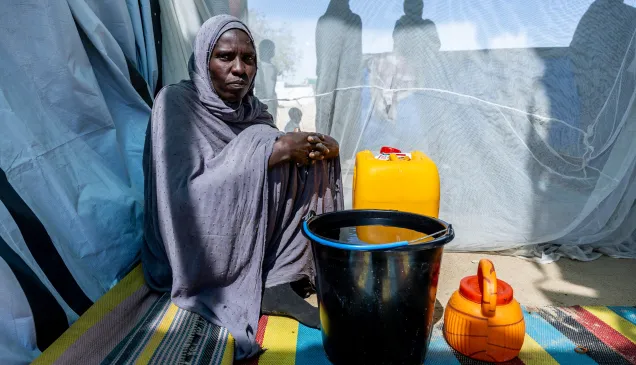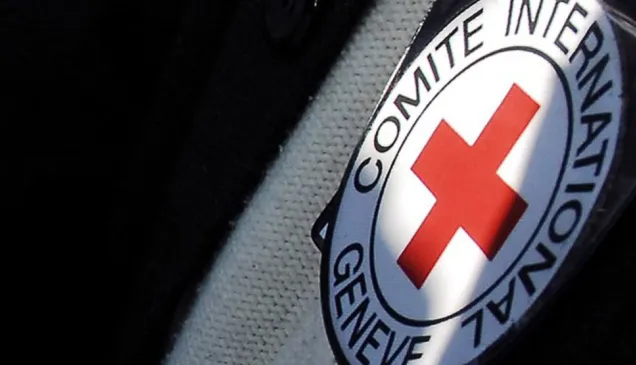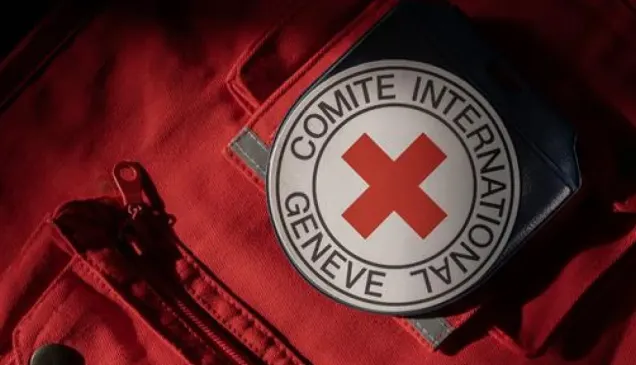Statement by the ICRC to the United Nations General Assembly, Fourth Committee on Respect for International Humanitarian Law in Peacekeeping Operations, Agenda item 56: General debate on the comprehensive review of the whole question of peacekeeping operations in all their aspects
Peacekeeping operations (PKOs) are the most tangible instrument the UN has to implement its peace and security mandate. Over the last 20 years, the UNSC has entrusted UN peacekeeping operations with the authority to use force, even deadly force, to ensure the protection of civilians, including through "stabilization" tasks and the neutralization of security threats. This robust posture has de facto increased the likelihood of applicability of international humanitarian law (IHL) to PKOs and of their designation as party to an armed conflict. The International Committee of the Red Cross (ICRC) operates in the same theaters, with an IHL -based mandate to neutrally, impartially and independently protect and assist the victims of armed conflict and to create an environment conducive to the respect of IHL.
At a defining moment embodied in the "Action for peacekeeping" initiative, geared towards more effectiveness and accountability, the ICRC would like to share four messages:
1. First : the principle of "do-no-harm" should be the primary directive when protecting those at risk
Protection of Civilians is a centrepiece of peacekeeping. The notion of civilian in the context of today's armed conflicts is one that is being discussed from legal, operational and policy points of view. As an example, operations are carried out in close proximity to civilians and distinguishing fighters and sources of threats from the civilian population has become increasingly difficult and can result in inappropriate actions against communities related to, or assimilated with, such threats. When they use force, peacekeepers need to be fully cognizant of the legal framework applicable to protect civilians, be they norms of IHL or human rights. Operations must be planned accordingly.
Even if peacekeepers are not engaged in hostilities, they may be perceived as a threat and be directly targeted by weapons bearers. Proximity of peacekeepers with populations, even temporarily, may expose people to reprisal attacks or incidental harm. These risks should be carefully taken into account. When setting up community alert networks, PKOs must make sure to engage communities in a safe manner.
The ICRC recommends that PKOs resources are focused on activities, armed or unarmed, in which peacekeepers are the only ones able to, or are the best placed to deliver protection outcomes for communities, such as physical protection. Neither humanitarian nor human rights organizations are able to deliver such protection. The ICRC recognizes the value of the full spectrum of assets available to peacekeepers, and the importance of non-military assets in protecting civilians. It welcomes PoC unarmed approaches as integral parts of PoC mandates. Those approaches should, however, not be seen as a substitute, but rather complementing armed interventions by peacekeepers to protect civilians. Such approach should remain an important tool of the PoC toolbox.
2. Second : Protection of healthcare by peacekeepers should be considered as an essential part of their PoC mandate
Another way for PKOs to deliver successfully on their PoC mandate is through the provision of medical evacuations to the wounded and sick without discrimination. On the basis of their PoC mandate, UNPKOs may be bound by the obligation to ensure treatment or at least access to healthcare to those wounded and sick, as one of the main feature of their PoC mandate. The landmark Security Council resolution 2286 explicitly recognizes that UNPKO can help to contribute to a secure environment to enable the delivery of medical assistance, in accordance with humanitarian principles. Resolution 2286 specifically foresees a role for peacekeeping missions in fostering a conducive environment for the delivery of healthcare. In this regard peacekeepers can make a positive contribution to healthcare by searching for, collecting and evacuating the wounded and sick even if they are not considered as a party to the conflict themselves. They can ensure security perimeters around health facilities whose personnel, means and premises are at risk of attacks. They can also refrain from disturbing delivery of medical services through strict procedures when searching health facilities for law enforcement operations or as part of their patrolling tasks. In addition, peacekeepers may facilitate access for humanitarian agencies and even delivering health assistance directly in some situations.
To deliver on those tasks, peacekeepers need clear guidance, collaboration with humanitarian actors and resources.
The ICRC staff and volunteers of the Red Cross/Red Crescent know first-hand the human cost of failure to protect but have also directly benefited from or have witnessed effective protective interventions from peacekeepers from Bangui to Bamako.
3. Third: respect and ensuring respect for the applicable legal framework is essential.
States and international organizations such as the UN are required to ensure that parties to a conflict comply with international humanitarian law. Under this obligation, they must take steps to bring parties to the conflict back to an attitude of respect for international humanitarian law, by using their influence on these parties. They are in a unique position to do so when supporting extension of state authorities and/or being in support of national state security forces in their own offensive operations. The Human Rights Due Diligence Policy offers a sound framework to apply due diligence and a leverage to influence behaviours.
The African continent has witnessed an increase in sub-regional ad-hoc security coalitions as a response to complex security challenges, including threats of acts of terror. At a time of enhanced partnership between the UN and the African Union, including on collective security arrangements, States and international organizations must ensure that troops and police are adequately trained, equipped and instructed to ensure compliance with IHL. The ICRC contributes to this effort: in 2017, we briefed more than 25'000 peacekeepers during pre-deployment sessions on international humanitarian law and other relevant issues of interest.
4. Fourth: detention by peacekeeping missions is a reality to be acknowledged
In many missions, UN peacekeepers routinely apprehend, detain or hand people over to host State authorities. Though it is an ordinary occurrence in armed conflict and a corollary of the use of force, detention seem to be conceived as a temporary measure and accordingly handled in a reactive way. Detention is rarely mainstreamed in the planning of peacekeeping operations. Detention-related activities of missions remain underfunded with limited capacities in terms of logistics, infrastructure and trained human resources. The ICRC is following closely the UN's efforts to revise the Interim Standard Operating Procedures (SOP) on detention and other SOPs designed for specific contexts in order to ensure their compliance with relevant international rules, including IHL when applicable.
To conclude : sharing the same theaters of operations as with PKOs, the ICRC strives to be a reliable sounding board based on its operational presence and proximity to both affected civilians and arms carriers from all sides. Peacekeeping stakeholders have engaged the ICRC in a fruitful collaboration on the review or formulation of important policy and guiding documents such as the PoC in peacekeeping Policy Review and the Vancouver Principles. Together with UNHCR, the ICRC has also spearheaded work on an operational guidance on maintaining the civilian and humanitarian character of sites and settlements in armed conflict. This is of relevance to the realities with which peacekeeping stakeholders are confronted. Last but not least, the ICRC has recently published a report on the "Roots of Restraint in War" that identifies formal and informal sources of influence on various types of armed forces and armed groups, including those embedded within their communities. We hope that this study will support States and PKOs to better carry out their mandates during armed conflict. The ICRC stands ready to continue collaborating with any initiative aiming at alleviating the human suffering during armed conflicts and situations of violence.



